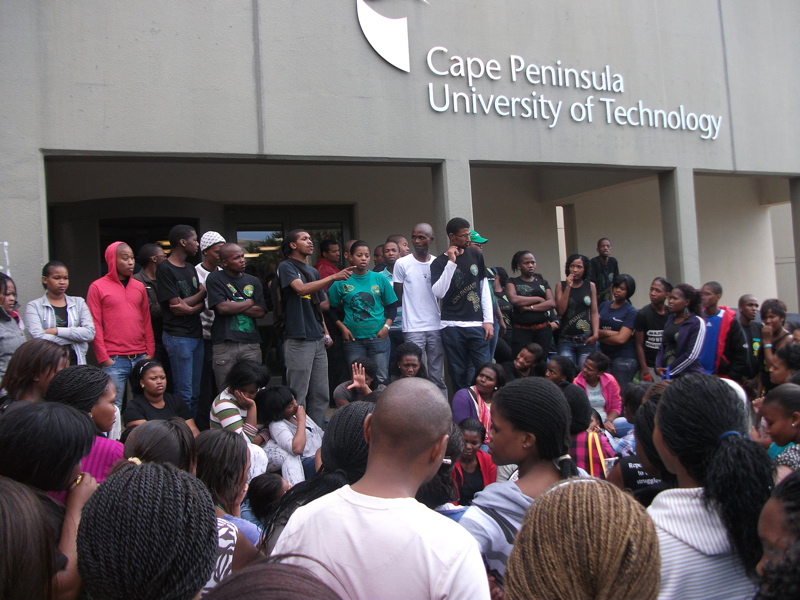While protests are ongoing, media liaison at the Cape Peninsula University of Technology (CPUT), Thami Nkwanyane claims that management are performing their duties by informing students and staff about the unrest at it’s Bellville campus.
Students are reportedly demanding registration without the payment of tuition fees.
“As a University we are very concerned about the safety, security and welfare of our staff and students and will do anything in our power to ensure their well being. We did inform students and staff of the developments on campus through our internal communication platforms, which ensures that both students and staff get the messages in their mailboxes/ inboxes,” says Nkwanyane.
Protests occurred when management refused to allow students to register without paying registration fee or tuition fees of previous years, owed to the university by these students. Students were dismayed as they lacked the funding to pay for their studies.
“We are poor and don’t have money,” revealed a student, who wished to remained anonymous.
Management had a meeting with the Student Representative Council (SRC) to resolve the matter last Tuesday, however protests persisted.
“We had a meeting Tuesday with a view of resolving the sporadic protests that were started by a group of students on Friday and ended up with the arrest of two students on the Bellville Campus on Monday, 16 February. The two students have since been released on Tuesday morning,” says Nkwanyane.
SRC and management agree resolutions
The SRC on Monday announced several resolutions reached with the university’s management, during ongoing negotiations between the respective parties. They are listed as:
1. Academically deserving students who have passed and will be progressing to the next year of study should not be subject to the grid and not be excluded.
2. Students who have failed and who have not progressed to the next year of study: The Council Grid/Formulae will be applicable in this instance.
3. Returning students who have not applied for NSFAS bursaries by the closing date: Executive Management should ensure that returning students who have not applied timeously for NSFAS bursaries should be allowed to apply for NSFAS bursaries in the current year.
4. Upfront Payment: Where a student‘s finance application is subjected to the Council Grid/Formulae, the R5000 will go towards the upfront payment.
Nkwanyane claimed the institution had always been mindful of the financial circumstances of their students, particularly those less fortunate.
“Given the historical background of the institution as one of the most accommodating in terms of low student registration and tuition fees, it also has to be sustainable and operate optimally. In light of this background, the University Council made an effort to arrest the accumulation of student debt. This has been done without excluding academically deserving students, but through introducing measures that specify the different amounts, depending on the debt, that students should pay before they can register in line with rules of the National Credit Act,” says Nkwanyane. VOC (Nailah Cornelissen)






 WhatsApp us
WhatsApp us 

